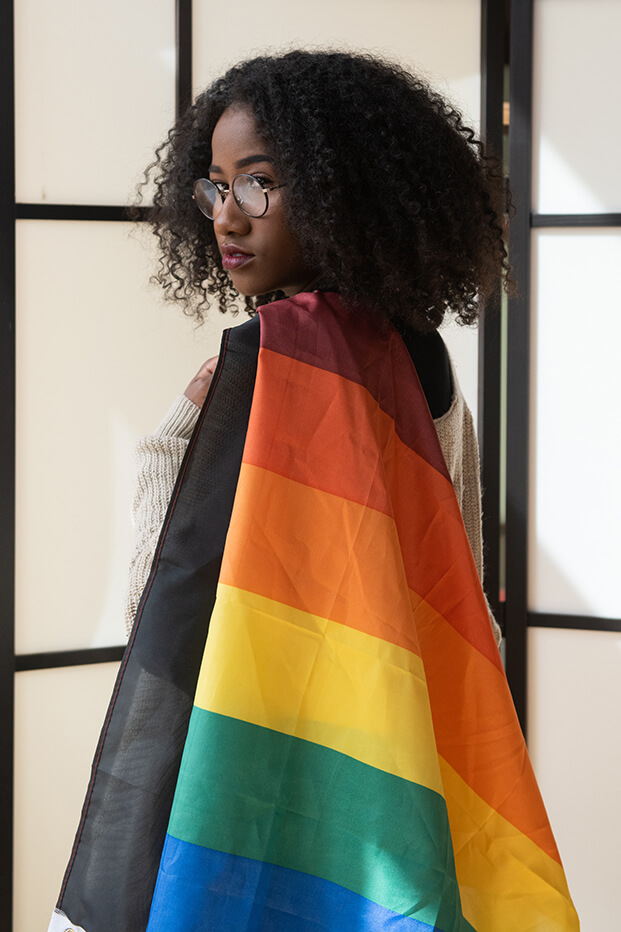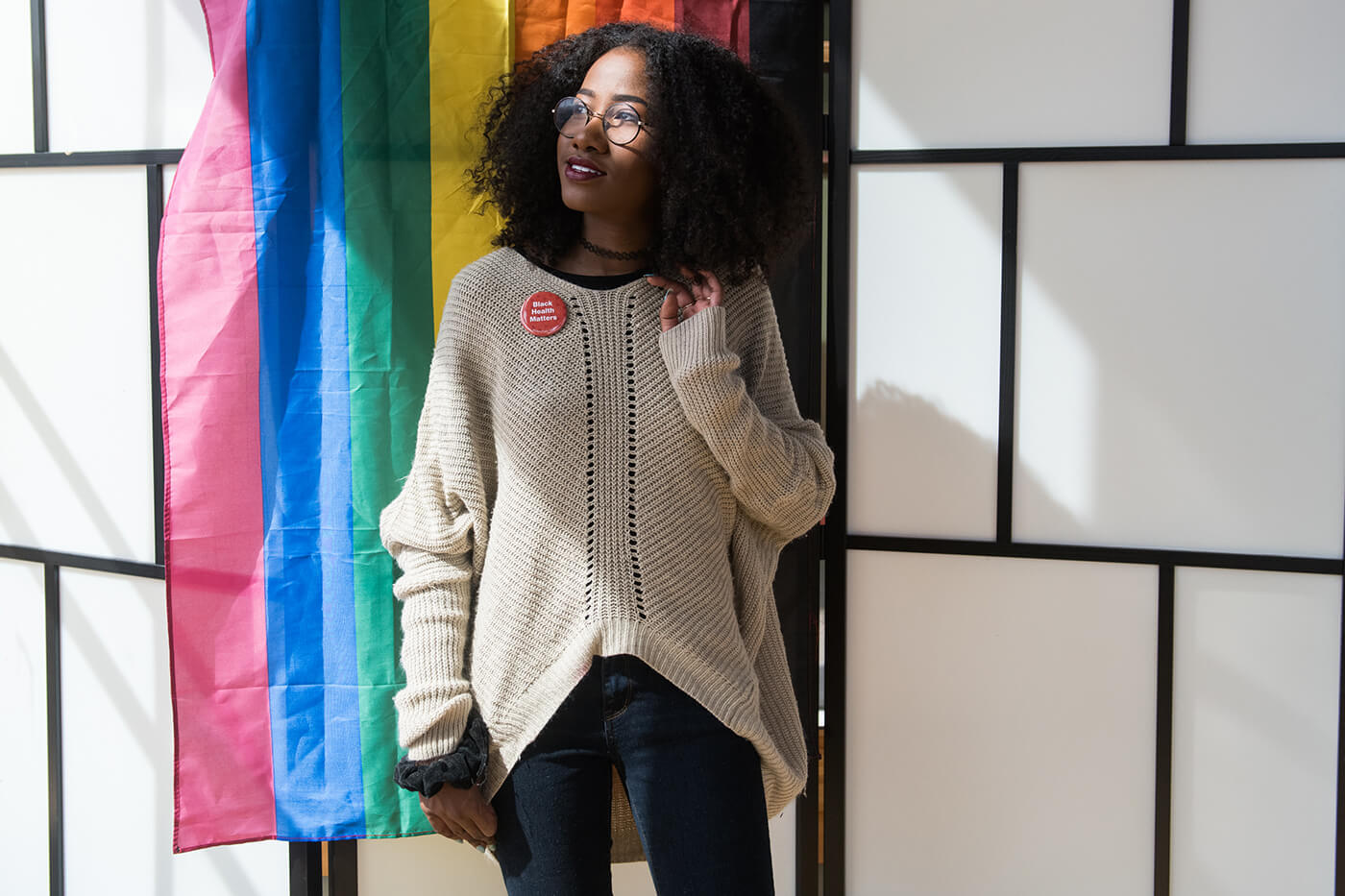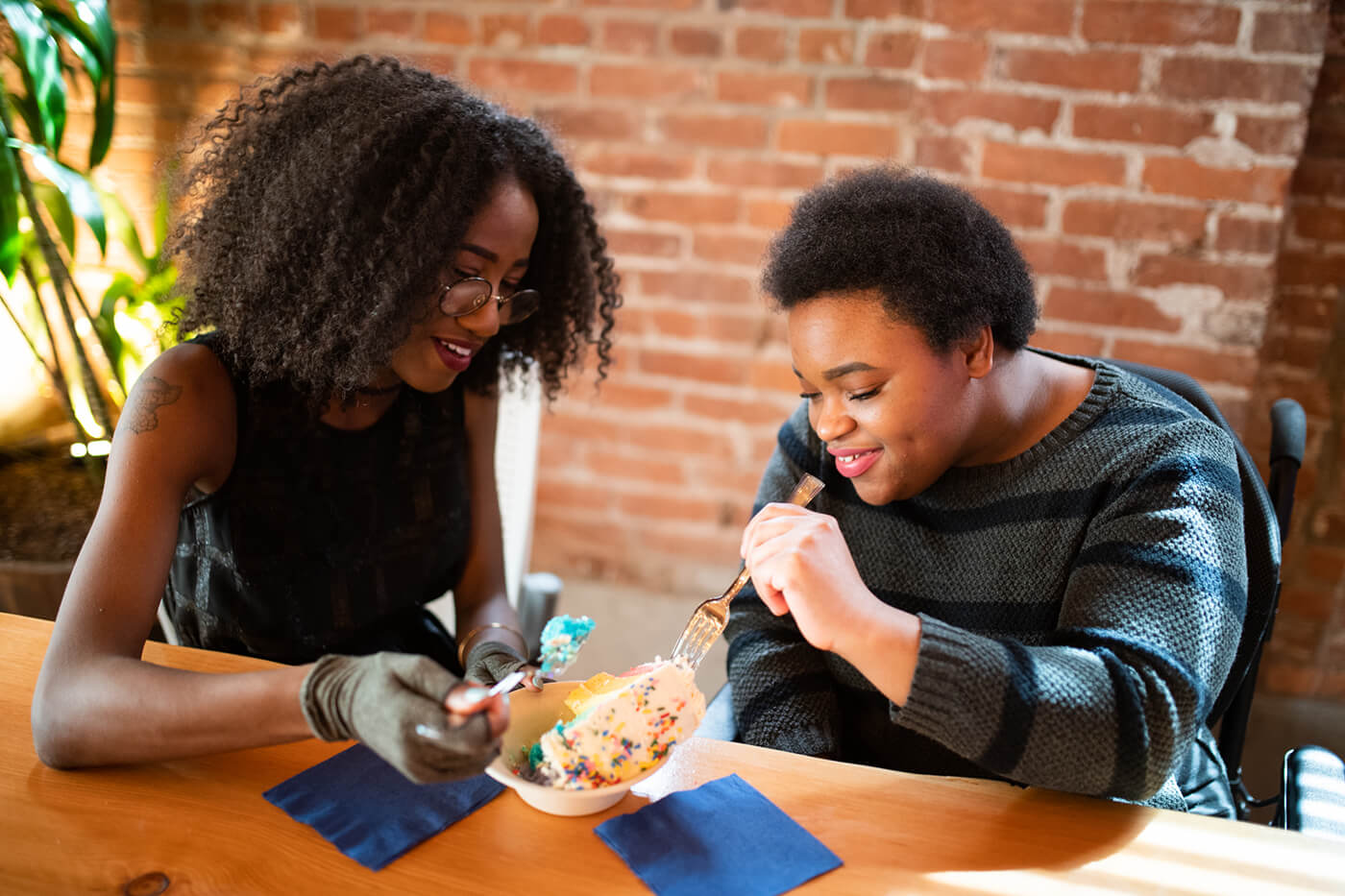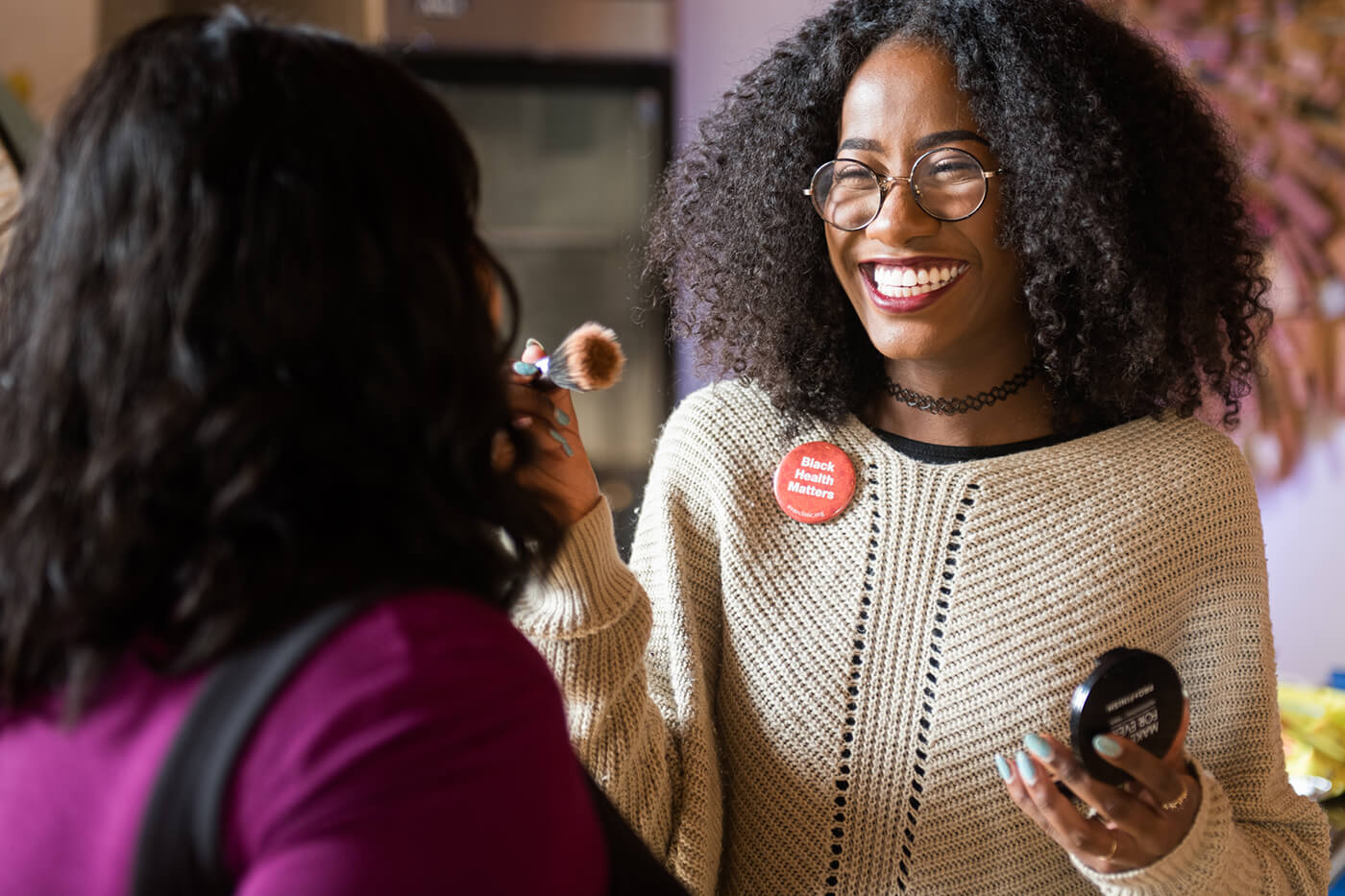June 25, 2019
Disabled And Here: Interview with Bemnia Lathan
Hi Bemnia! How do you want to introduce yourself? My name is Bemnia. I’m a make-up artist and all-around artist of various trades. I like to create with people and oftentimes that takes the form of photo shoots, which is why I’m so excited to be a part of this one. I’m [also] an esthetician and beauty consultant — an esthetician is a skincare specialist, and I generally specifically work with people of color because our skin is so specific.

Have there been any gigs or projects in particular that stood out as your favorites? This one has been one of my favorites, for sure. I recently got to do a shoot called The Naked Series. It’s not out yet, but I’m really excited to see the pictures — it’s people telling their stories with their bodies, usually disabled people. I loved being in the Albina Queens photo shoot, which represents Black femmes in the Pacific Northwest. That really meant a lot to me and it was [wild] seeing my face on the wall in an exhibit, like: that’s a thing!
Rewinding back to your origin story a bit, what was it like growing up in Portland, Oregon? What do you like or not like about being in the area overall? I was born in Portland, but not exactly raised here. I have been back for the last 7 or 8 years. It’s interesting coming back to a place that you’re from, but really didn’t have your childhood in, but I did visit a lot. I have a lot of mixed feelings, especially being a Black femme from here. My family has been in Portland since the late 1800s, which was before it was legal for Black people to live here, so there’s a lot of generational trauma in the family. There’s also just this inherent pride and stubbornness that I feel like a lot of POC have — especially Black people and Indigenous people in Oregon — because they try so, so hard and continue to try so, so much to get rid of us and we’re just like, “No, we’re not going anywhere! We’re still here. Fuck you.” [laughs]
So, I have a lot of pride being from here, but: mixed feelings. It’s never really felt like my home.
Makes total sense. Switching tracks a bit, what are some misconceptions that people have about chronic illness or invisible disability? First of all, not enough people even realize that invisible disabilities exist. They don’t have any concept of it, and if they do, they don’t understand the many, many ways it impacts you and every part of your life. People are just like, “Oh, you have a hard time walking sometimes…that’s it.”
It’s like, “No, I have a hard time walking sometimes because I have inflammation and then this hurts and that hurts, and that makes it difficult to eat, and it all goes into each other.”
Accessibility is different too for people with invisible and visible disabilities. People will say, “This space is accessible.” Nope!

One of the biggest misconceptions is: people really, truly think that you have to have a diagnosis. People treat diagnosis like it’s everything and if you don’t have a diagnosis, that means you don’t have [a disability]. It’s like: no, my symptoms didn’t all suddenly disappear just because you haven’t been able to come to a consensus on what to call this.
Going back to the accessibility thing for a second, can you talk more about how “accessibility” is viewed differently between disabled and non-disabled folx? I’ve seen events that are “centrally located” in Portland which should be easy to get to wherever you’re coming from. At the same time, they won’t have an elevator and there will be steps. You can’t call this an accessible space!
Sometimes there isn’t any public transit nearby and everything else is great, but…I don’t have a car. If I can’t get there by bus, or if the closest bus stop is a 10-15 minute walk away, that’s not accessible.
And there’s safety for intersecting identities. While it’s great to have disabled-only spaces, I do think it’s very important to have spaces for Black and Indigenous POC and queer people as well. A lot of disabled spaces can be very…unfortunately, racist and anti-queer. That’s another thing that adds to accessibility — if all these [other] things are great, it’s not going to matter at the end of the day if my friends who are trans don’t feel safe going there because some asshole is going to be staring and yelling at them and asking weird questions.
That all plays into [a space] being safe and accessible.
Have there been any chronically ill-centered hashtags / movements that resonated with you over the past year? Yeah, I really like using #spoonie or #SpoonieLife on my posts. I’ve been trying to be more visible about my chronic illness on social media and it’s easy to engage with other people in the community with those hashtags.
What do you like to do for fun or relaxation? Binge-watching TV is my jam. I love reading — I haven’t been able to do as much [lately], due to brain fog, but I still read a lot, I guess compared to most people. I like to draw, write poetry, and I’m really getting into community organizing.
My house that I live in now is really big and beautiful — my roommates are awesome, and we all agree that we want it to be a safe space for people.
I find astrology to be extremely fascinating, and I’ve been learning a lot about that. I love doing karaoke, going out to dance, eating out…

I don’t cook. I need to say that: I do not cook! So I love eating out with people.
Is there anything you’d like to wrap up with? Being chronically ill, it’s important to me to say: the way our healthcare system works [in the United States] is absolute trash. It’s not working for anybody and we need to scrap the whole thing and make it better. It is so insufficient and I don’t think people realize how much time and resources people are using and waiting on. Even when you have the absolute best, best healthcare, it still takes way too long and people are still not getting their needs met.
For sure. Going forward, what are some ways that people can follow and/or support you? You can follow me on Instagram — my handle is just my first name, @bemnia. I’m also on Tumblr, if that’s your thing. My name on there is beauty-and-other-random-things. If you want to engage with me, Instagram is a good way to reach out.

And if people wanted to drop you some money? Ooh yeah, my Cash app is $Bemnia.
September 10, 2021: image captions have been updated with Bemnia’s current pronouns. Content of the interview still remains the same. Previously, the interview was edited and condensed for clarity.